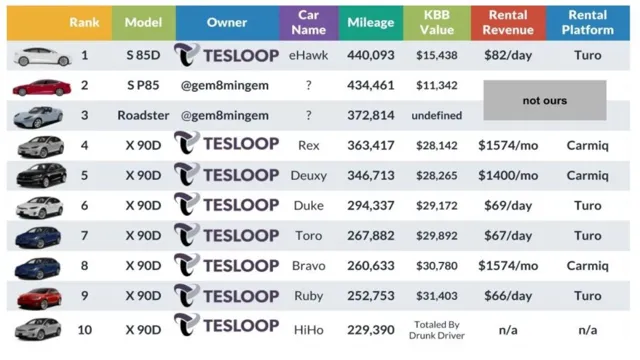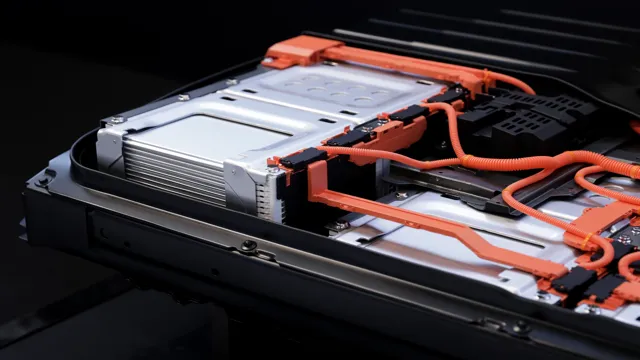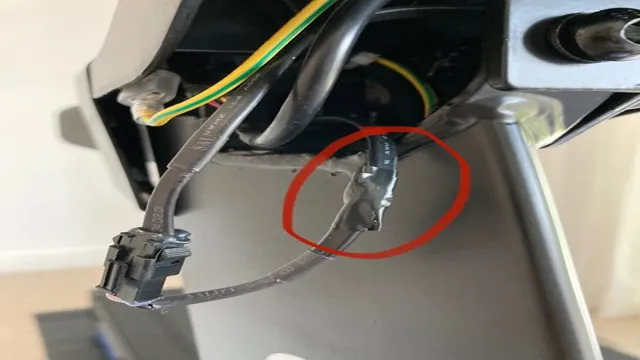Are you Shocked? Electric Car Battery Replacement Costs More than the Car!
As electric cars become more mainstream, many people are considering making the switch from gas-powered vehicles to ones that run on electricity. While electric cars are known for being eco-friendly and cost-efficient in the long run, one aspect that often gets overlooked is the cost of battery replacement. Unfortunately, the reality is that electric car battery replacement outlays can be astronomically high, making it not as cost-effective as it once seemed.
In this blog, we’ll delve into the costly truth of electric car battery replacement and provide some insights into what to expect if you’re considering making the switch to an electric vehicle.
Why Electric Car Batteries Cost So Much
Electric car batteries are one of the most expensive components of an electric car, and replacing them can be quite costly, even more expensive than replacing a traditional combustion engine car’s battery. The high cost of electric car batteries is primarily due to the materials used in their production, namely the lithium-ion cells. These cells are relatively expensive and require specific manufacturing processes that can be challenging to scale up for mass production.
Additionally, the raw materials for these batteries, such as rare earth metals like cobalt, nickel, and lithium, can be expensive and difficult to obtain. However, advances in battery technology, such as solid-state batteries, could potentially decrease costs while also increasing energy density and range. As the market continues to grow, we can expect to see more innovation and competition in this market, ultimately leading to more affordable electric cars with longer-lasting batteries.
Complexity of Battery Technology
Electric car batteries are complex and expensive due to their advanced technology. Unlike traditional batteries, electric car batteries require high energy density and power density for extended driving ranges and fast charging times. The materials used in these batteries, such as lithium-ion, cobalt, and nickel, are also expensive and difficult to mine.
Furthermore, battery production involves intricate manufacturing processes that require precise control to avoid defects that could compromise the battery’s safety and performance. Despite their complexity, advancements in battery technology have led to continuous improvements in efficiency and cost reduction. In conclusion, while the complexity of electric car batteries may drive up their cost, their benefits in terms of sustainability and lower long-term costs make them a worthwhile investment.

Labor Costs for Replacement
When it comes to electric cars, the cost of labor for battery replacements can be a significant expense. But have you ever wondered why these batteries cost so much in the first place? Well, it all comes down to the technology used within the batteries themselves. Electric car batteries are made up of hundreds, if not thousands, of individual cells that must be carefully manufactured and assembled to function correctly.
This complex process drives up the labor and manufacturing costs associated with producing electric car batteries. Additionally, the cost of the raw materials used in the batteries, such as lithium and cobalt, can fluctuate widely, adding to the overall expense. However, as the demand for electric cars continues to rise, we may see advancements in battery technology that could help lower the costs associated with replacing these crucial components.
Limited Competition and Lack of Mass Production
Despite the increasing popularity of electric cars, the batteries used to power them remain quite pricey. One of the key reasons for this is the limited competition in the market, as there are currently only a few major players dominating the production of electric car batteries. This means that the companies that do manufacture batteries are able to charge a premium for their products since there are no real competitors offering more affordable options.
Additionally, the lack of mass production of these batteries also drives up the cost as manufacturers cannot realize the benefits of economy of scale. Simply put, if more companies were producing these batteries and were producing them in greater quantities, the cost would likely come down significantly. As it stands, however, the high cost of electric car batteries remains a significant factor in the adoption of this technology among consumers.
How Much Does Electric Car Battery Replacement Cost?
Electric car battery replacement costs more than the average car battery replacement due to the complexity and advanced technology used in the electric car’s battery pack. The cost for a replacement battery can range from $3,000 to $7,000, depending on the make and model of the electric vehicle. While this may sound expensive, it’s important to remember that electric car batteries typically last much longer than traditional car batteries, with an average lifespan of 8-10 years.
Additionally, electric cars offer significant savings in fuel costs and maintenance expenses over time, which can outweigh the upfront cost of a battery replacement. For those concerned about the cost, there are several options available, including warranties, financing, and used or refurbished battery packs. Overall, while electric car battery replacement may be a more substantial expense upfront, the long-term benefits and cost savings of owning an electric vehicle make it a worthwhile investment.
Data on Battery Replacement Costs by Car Model
Electric car owners may have concerns about the cost of battery replacement for their vehicles. The truth is, the cost varies depending on the car model. Data on battery replacement costs shows that some models, such as the Nissan Leaf, have relatively affordable battery replacement costs, averaging around $5,500.
Meanwhile, luxury electric car models, such as the Tesla Model S, can cost up to $12,000 for a battery replacement. However, it’s essential to keep in mind that not all electric car batteries will need replacing, as the lifespan of batteries depends on various factors such as usage, temperature, and charging habits. It’s also worth noting that some manufacturers offer warranties that cover replacement costs for a certain number of years or miles, making battery replacement costs less of a concern for electric car owners.
Overall, while battery replacement costs are a factor to consider, it shouldn’t deter potential electric car owners from making the switch.
Factors that Affect Replacement Costs
Electric car battery replacement cost The cost of replacing an electric car battery depends on various factors. The first factor is the type of battery used by the electric vehicle. Lithium-ion batteries are the most common type of electric car battery, and they can be more expensive to replace compared to other battery types.
The second factor is the battery’s capacity, which affects the battery pack’s overall price. Other factors that can affect replacement costs include the electric vehicle’s age, condition, and warranty coverage. Under warranty, the replacement cost can be significantly lower or even free.
On the other hand, replacing the battery outside of warranty can cost anywhere between $3,000 to $10,000 or more. However, it is important to remember that electric cars’ battery technology is continuously advancing, and the costs are likely to come down in the future. So, if you’re considering purchasing an electric vehicle, be sure to factor in potential battery replacement costs when making your decision.
Is it Worth the Investment?
Electric cars are gaining popularity due to their reduced environmental impact, but some people are concerned about the high cost of battery replacement. It’s true that electric car battery replacement costs more than replacing a traditional car battery. However, this shouldn’t be a deterrent in making the investment in an electric car.
Firstly, the lifespan of electric car batteries is longer than traditional car batteries, meaning you won’t need to replace them as frequently. Secondly, you can offset battery replacement costs by saving on fuel expenses, as electric cars are much cheaper to run. Additionally, the cost of battery replacement has been steadily declining due to advancements in technology and economies of scale.
In the long run, electric cars should be considered a wise investment as they not only save on fuel costs but also reduce carbon emissions, contributing to a better future for our planet. So, the initial investment may be higher, but the benefits far outweigh the costs.
Comparing the Cost of Battery Replacement to Gasoline
When considering the cost of battery replacement vs gasoline, it’s important to weigh the initial investment against the long-term savings. While the upfront cost of a battery-powered vehicle may be higher, the cost of charging is significantly lower than constantly filling up with gas. In fact, studies have shown that the average electric vehicle can cost up to four times less per mile to operate than a gas-powered car.
Plus, battery technology is constantly improving, making replacements more affordable and efficient in the long run. So, while it may require a larger investment upfront, the cost-effectiveness and environmental benefits of going electric make it a worthwhile choice for many drivers.
Environmental Benefits of Electric Cars
When considering the environmental benefits of electric cars, many people wonder if the investment is worth it. The answer is yes! Electric cars have a significant positive impact on the environment. They emit fewer greenhouse gases than traditional gasoline-powered vehicles, which means they reduce air pollution and help combat climate change.
In addition, electric cars don’t have tailpipes, which means they don’t release harmful emissions into the air. This is good news for those who live in congested cities with air pollution problems. Not only do electric cars help the environment, but they can also save you money in the long run.
While the initial cost of an electric car may be higher than a gasoline-powered car, the cost of electricity is significantly cheaper than gasoline. Plus, electric cars don’t need as much maintenance as traditional cars, which can save you money in the long run. So, while the investment in an electric car may be higher upfront, the environmental and cost-saving benefits are worth it.
Conclusion: The Price of Going Green
In this case, it seems that the old adage, ‘you get what you pay for’ rings true. While the initial cost of an electric car may be higher than a traditional gas-guzzling vehicle, the long-term benefits of reduced emissions and fuel costs cannot be ignored. And while the cost of a battery replacement may be higher, it’s important to remember that these batteries are an investment in our eco-friendly future.
So, while it may cost more to replace an electric car battery, it’s worth it for the sake of our planet and our wallets in the long run.”
FAQs
Why do electric car battery replacements cost more than traditional car batteries?
Electric car batteries use advanced technology and materials that are more expensive than traditional car batteries. Additionally, electric car batteries are larger and have a longer lifespan, which also contributes to their higher cost.
Can I replace my electric car battery with a traditional car battery?
No, you cannot replace an electric car battery with a traditional car battery. The two are not interchangeable due to differences in technology and power needs.
How much does it typically cost to replace an electric car battery?
The cost of replacing an electric car battery can vary widely, depending on the make and model of the car. Generally, it can cost anywhere from $5,000 to $15,000 or more.
Is there any way to reduce the cost of replacing an electric car battery?
Some manufacturers offer warranties or battery replacement programs that can help reduce the cost of replacing an electric car battery. Additionally, purchasing a used or refurbished battery may also be a more affordable option.






